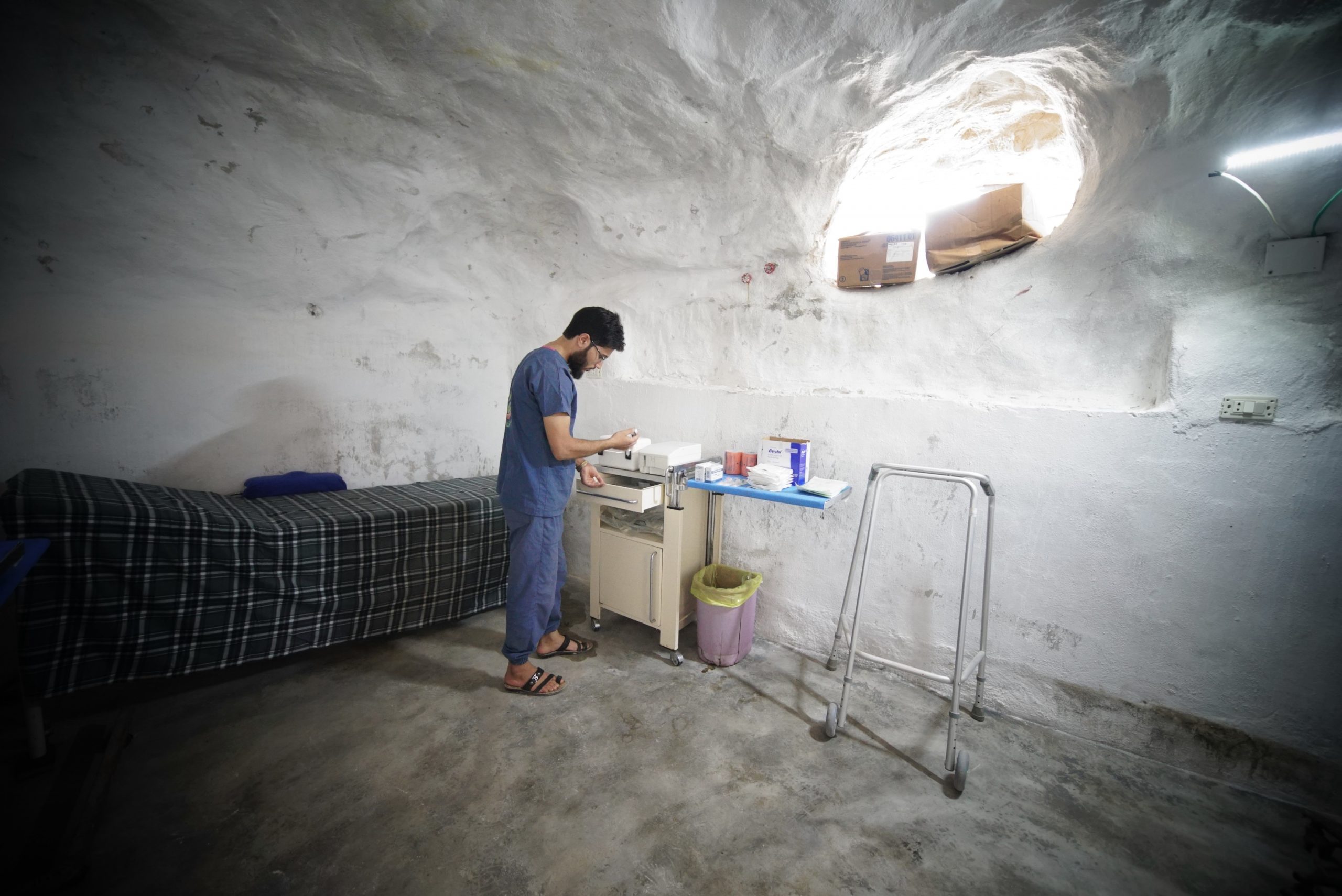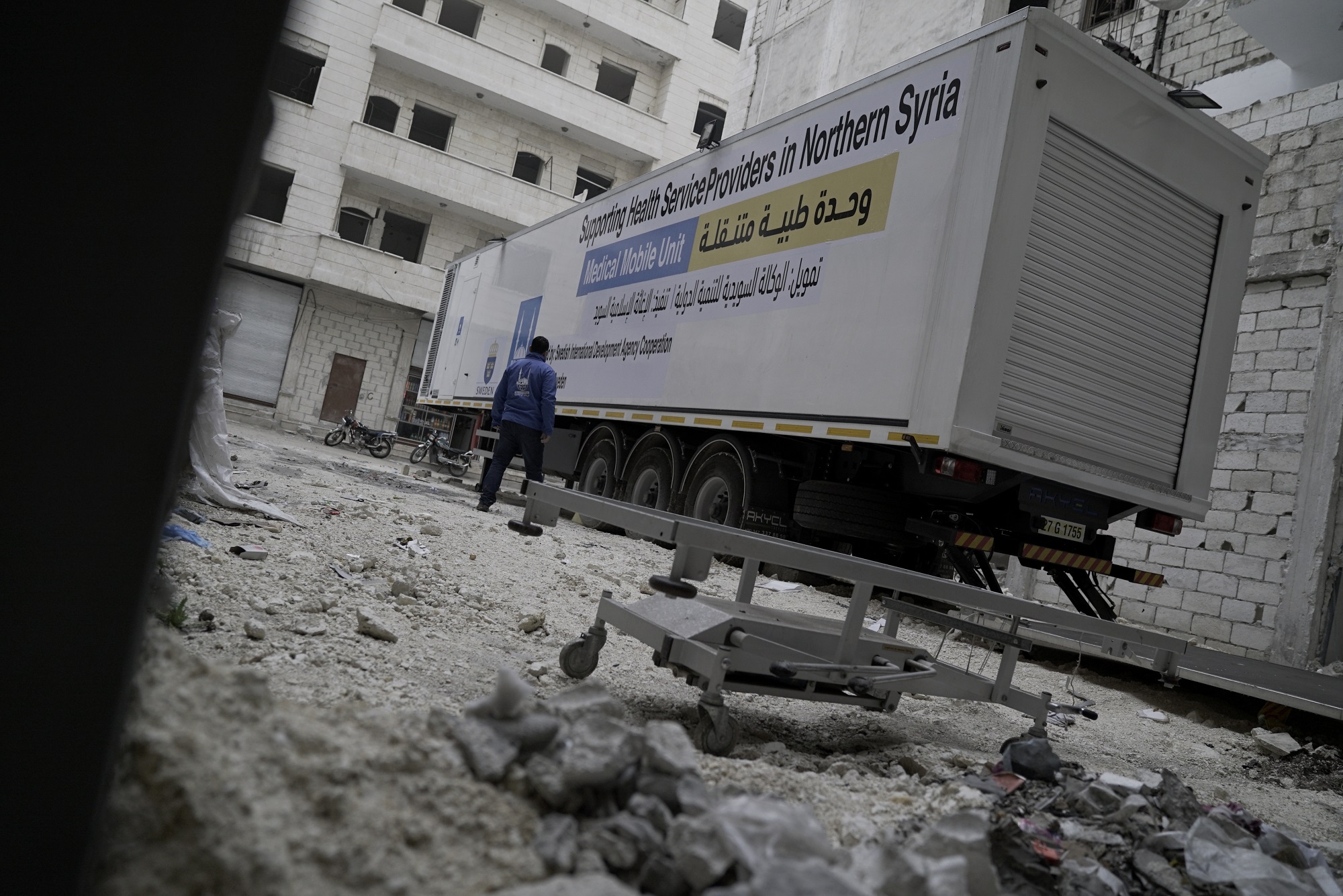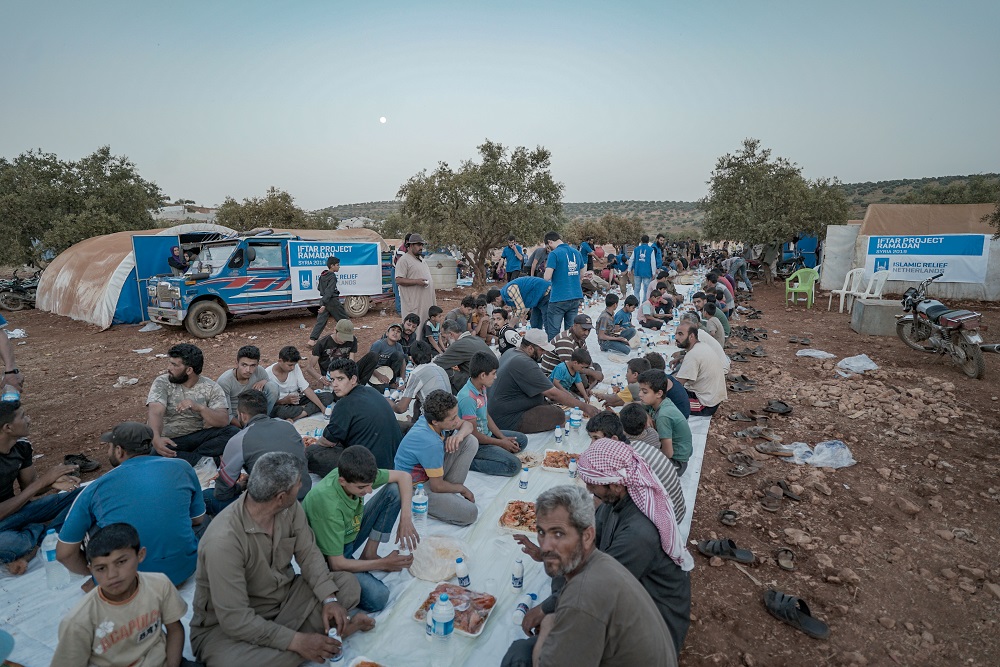Ahmed Mahmoud*, Syria Country Director for Islamic Relief, reports in Thomson Reuters Foundation News on the situation in Idlib, Syria on 3 June 2019.
Normally, on the day before Eid in northwest Syria, the streets would be alive with people shopping for the Eid celebrations. But this year, they are eerily deserted. Today, three people were killed in an attack on a market in southern Idlib and last night, a father and his four-year-old son were killed while shopping for new clothes for Eid in northern Aleppo. The mother is in intensive care.
People are too scared to leave their homes. They’re even too scared to turn the lights on inside their homes and are breaking their fast in the pitch black. Mosques have been forced to cancel prayers because civilian gatherings have become targets. Who knows if it will be safe enough for people to go and pray tomorrow on one of the holiest days of the year?
I’ve been going in and out of Syria, now in its ninth year of crisis, for years, and have watched the situation lurch from one horrifying low to another.
Over such a long time, you think you build up a resistance to it but what I have seen in Idlib over the last few days mirror some of the worst atrocities of the last eight years and is a painful reminder that here things are only likely to get worse.
For days now, the sound of bombs has rung incessantly in our ears. The strikes have hit hospitals, schools, camps for the displaced and countless civilian homes and neighbourhoods.
Last Tuesday, one of the major trauma hospitals in Idlib – which is supported by my organisation, Islamic Relief – became the latest medical facility to be struck. It was around the 20th such attack on a health facility in the last three weeks alone, although the assaults have become so frequent it is becoming difficult to keep count.

In an attempt to protect it from attacks, this hospital was partially built in a cave beneath two metres of solid rock. Despite this, part of the building crumbled and operations had to be suspended.
Health workers inside were terrified that bombs would trap them underground but as the wounded started to flood in, they felt they had no choice but to keep working despite the danger, risking their lives as they do every day.
The doctors were doing all they could, but with so many wounded they are running out of simple supplies like anaesthetics and antibiotics.
As I stood there, patients like Rabia*, an elderly woman who was badly injured in an airstrike, just kept on pouring in. One case after another paying testament to how civilians are paying the heaviest price in Idlib.
The reality is that there is simply nowhere left to hide and nowhere to feel safe. The cave hospital that was hit in broad daylight was nowhere near any military targets, and not really near anything at all.
It is difficult to see how it could be an accident and done for any other reason other than to create even more collateral damage and pour even more fear into the lives of innocent civilians like Rabia.

The horror in Syria has been going on for eight years now, and in the north-west of the country, fighting has intensified in the past month, killing more than 300 civilians and displacing more than 300,000, according to cluster data gathered by a collection of aid groups.
The roads are jammed with trucks all driving north as fast as they can. The trucks in turn are jammed full of people who are desperate to get out. Those that couldn’t get a space walk forlornly along the road in the sweltering 40-degree heat, with nowhere but the occasional tree to give them shelter.
They only carry what they can, knowing that it will likely only be a matter of time before they are displaced once again – an all too familiar ritual for the three million people trapped here, more than half of whom have already been displaced from other parts of Syria.
Many don’t even know where they are going, the camps for the displaced are horrifically overcrowded already and in the few last pockets of relative safety in the north of Idlib, property has become such a hot commodity that two families are now often sharing a single room.
These sites are enough to chill you to your core but having this latest escalation happen right in the middle of the holy month of Ramadan, just makes it that bit worse.
People are so desperate and are completely dependent on charities such as Islamic Relief to be able to eat.
This Ramadan, we distributed food to more than 70,000 people to make sure they can at least break their fast. We also provide medical support, including equipment and salaries, to several hospitals in the area like the one I saw bombed this week.

Our staff are going above and beyond but they are running against time. After eight years, civilians across Syria still face threats to their lives, dignity and wellbeing on a daily basis.
We urgently need to see a de-escalation in fighting and last year’s truce agreement in Idlib must be reinstated as a first step to finding a just and dignified peace for all Syrians. The international community must urgently take action to ensure the humanitarian needs of millions of desperate Syrians are met, and the horrific scenes of the last few days are not repeated.
*Names have been changed to protect identities
This blog was first published on news.trust.org.
Help us continue to be a lifeline for those suffering in Syria: donate to our Syria appeal.










